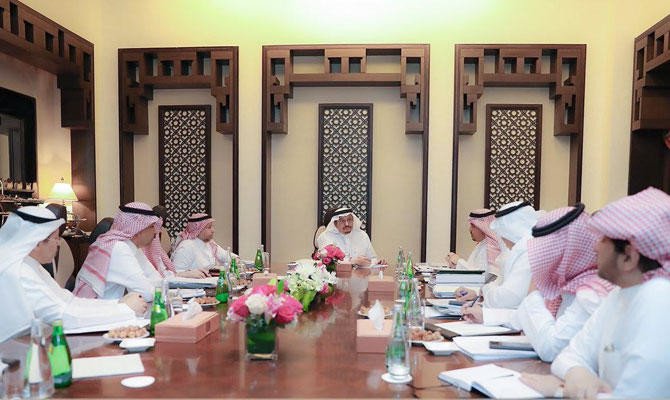
Saudi education minister gives teachers 100 days to improve results
The Saudi education minister, Dr. Hamad bin Mohammed Al-Asheikh, expressed concern at the state of schools in the Kingdom this week, during a speech to teaching staff in Riyadh.
Al-Asheikh said he “longed” for the day “when the Kingdom’s universities stop resorting to the preparatory year” to bring students up to scratch, saying it was essential if they were to ever be considered among top global institutions.
During his speech, he stated his belief that the education system should provide qualified professionals and encourage entrepreneurship for the good of the economy and wider society, and warned education leaders he was giving them 100 days to start improving their results.
“Universities are valued for their ability to impact society, address problems, and improve the country,” he added.
Al-Asheikh conceded the ministry needed to do more to help teachers, who he called the “cornerstones” of learning, but added that staff should still be performing better.
Achievement
Results published by the Amsterdam-based International Association for the Evaluation of Educational Achievement suggest the Kingdom does not perform well when compared to top nations, such as Japan or Norway.
Al-Asheikh said teachers should dedicate more time to reading and writing activities in the classroom, follow textbooks more closely and stay on top of students’ progress in order to improve outcomes.
Fouz Al-Jameel, a teacher of fine arts currently training in the US, said she felt teachers needed more opportunities and training.
“The ministry is not giving teachers enough attention. We need opportunities, such as the one I have now, to learn directly from other successful educational systems,” she said.
She supported the minister on the need for more literacy activities, though she disagreed with the suggestion teachers should teach to textbook specifications, especially in the arts.
Creative
“I always thought following a single textbook was not right. After I came to the US, I became convinced that students should master general criteria in each subject, and that the application of these criteria should be up to the teacher,” she added.
Loza Sawah, an English teacher from Jeddah, also believes teachers should have more freedom to be creative.
“I approve of encouraging more reading and writing in class, but these activities should not be limited by a textbook,” she said.






















